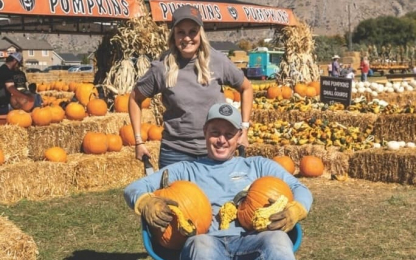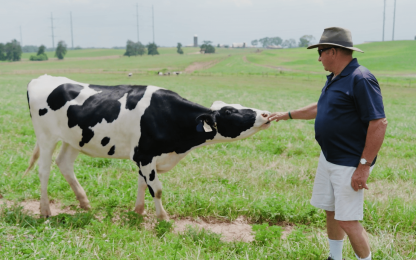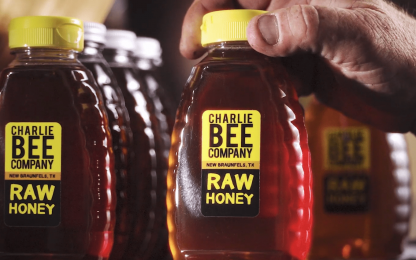Brad Bean is a third generation dairy farmer in Liberty, Mississippi where he cares for 500 head of Holstein cattle and 1,000 acres, alongside his wife Amy.
The U.S. Department of Agriculture (USDA) Farm Service Agency (FSA) enabled Brad to begin his career in agriculture.
Support from FSA
“I wouldn’t be here today if it wasn’t for FSA,” Brad said.
Years ago, Brad found himself with the opportunity to purchase his family’s farm from his mother, to carry the family’s business into the next generation. However, at the time, he didn’t have enough equity to do so on his own. With a strong connection to the farm and a dedication to pursuing a career in agriculture, Brad knew he had to find a way to buy the property and carry on his family’s legacy.
That’s when he learned about FSA. Brad worked with FSA to get a direct ownership and an operating loan. However, he maxed out the amount they were able to lend him. He then turned both to his mother to help finance part of the business and to Farm Credit for support.
“It was a very complicated procedure, but we got it done,” Brad said.
Young and beginning farmers
Reflecting on his own experiences, Brad understands the challenges facing today’s young and beginning farmers.
“The cost of land is going up every day; the cost of production is going up and equipment’s going up,” he said. “There’s really no way to get in into agriculture unless you have some size and scale.”
Facing such challenges, Brad feels strongly that we must create avenues for young and beginning farmers to enter the industry. “We need to do everything we can to open opportunities for young farmers to get financing, buy their own farm and get started.”
That’s why Brad supports increasing the FSA loan guarantee caps. “I think that for sure that the caps need to be increased because even young farmers need more size of scale to survive.”
The Farm Credit Council also supports increasing FSA loan guarantee caps to ensure that farmers have the capital they need to succeed.


